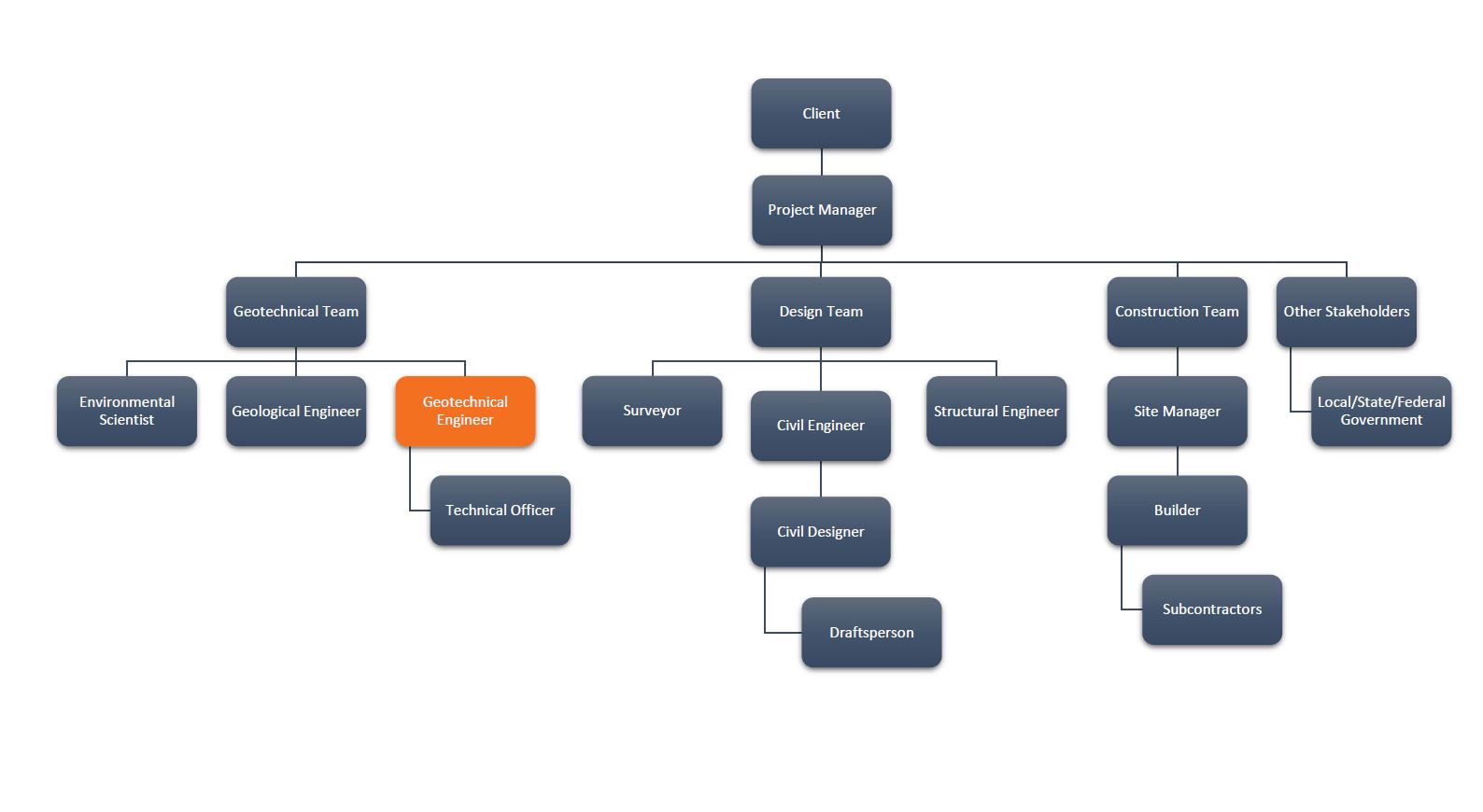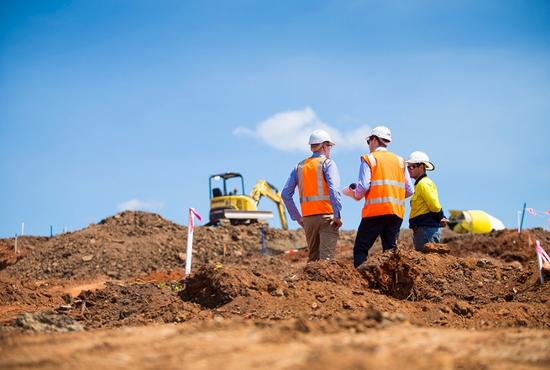


While the role is dynamic and their days are diverse, engineers in the field of geotechnics work hard to achieve optimal outcomes for their clients, those which help inform the scope, concept and detailed design, and strategy for construction projects.
Geotechnical engineering is a specialty field of engineering, specifically focused on using the principles of soil and rock mechanics to investigate, analyse and report on the impact that geological strata may have on construction projects. While the role entails undertaking many investigations, testing and analysis, ultimately it is the geotechnical engineer’s job to provide solutions to complex geological challenges. Simply put, geotechnical engineers analyse the borelogs and the results of various tests performed on naturally occurring elements such as rock and soil to determine whether building a structure in that particular location is safe, sustainable and economically feasible.
These recommendations then inform the wider engineering design and construction process. The knowledge garnered from a geotechnical report helps inform the proposed project’s design parameters and aids in the determination of construction works for a client’s construction project. These outcomes provide critical factors for key decision-makers to consider before proceeding with design and construction.
Geotechnical Engineers can work across a variety of project types for contractors, developers, builders, infrastructure, mining and energy, and agriculture clients.
While a Geotech’s primary responsibility is to investigate, analyse and report on the impact that geological features may have on a construction project, there are dozens of methods employed by the Engineer to develop these recommendations. These include, but are not limited to:
There are a number of different entry pathways into the role, however the process generally looks pretty similar for the majority of Geotechnical Engineers today. If you’re looking at entering the workforce as a school-leaver, you’ll usually need to finish with passes in English and Maths at a minimum, and passes in Physics and Chemistry is ideal. Most tertiary institutions also require minimum criteria such as an ATAR (Australian Tertiary Admissions Rank) score to enroll, so be sure to check the requirements at your institution of choice. If you don’t meet the minimum requirements initially, there are a lot of tertiary education providers that will allow you to take a bridging course before proceeding on to enrolment (like we said, there are many different pathways!).
When enrolling in a tertiary education program, all courses will be named and structured slightly differently, however, in most institutions, Civil Engineering is the course you’ll be looking for. Once you’ve completed your Bachelor’s degree, majoring in the Geotechnical field where possible, you’ll be in the market for a graduate position which are available across a wide range of industries and employers. You could work directly for the government, or in a mining role or for a private engineering company. Taking a position at a company like RMA Soils + Geotechnical is a great opportunity for a graduate, because you get to work and learn from a robust team of peers and colleagues. While you’re in your graduate position, you’ll get real industry experience and have the opportunity to work on both minor and major projects with a wide range of clients.
Once you’ve established yourself in your role and within the industry, you’ll be able to continue with postgraduate study if you choose and go on to specialise in any number of industry niches.
Eventually, many Geotechnical Engineers progress to formal memberships of industry associations like Engineers Australia or the Australian Geomechanics Society, where you’ll benefit from ongoing professional development and reputable accreditation.
There are many different pathways to become a Geotechnical Engineer, but at whatever point you begin your journey, you’ll be taking on a role that not only allows you to be involved in exciting and ground-breaking construction projects, but also helps shape the future of the communities you work and play in.
A career in the field of Geotechnical Engineering can be whatever you want to make it. You could freelance, you could be an independent contractor, you could build your own business, or you could work on rewarding projects at an organisation with great colleagues and amazing career progression opportunities like RMA Soils + Geotechnical. Many of our peers and colleagues have even started out in Geotechnical Engineering, and then gone on to specialty fields and new niches. The engineering and construction industry is your oyster.
Much like fitting together many, many puzzle pieces together to finish a puzzle, construction projects employ a number of people in many different roles, all of which are essential to bringing the whole thing to life. Geotechnical Engineers get to collaborate with a wide range of other specialists in the construction industry to help put projects together. The chart below shows where Geotechnical Engineers fit into the wider construction team.

We’re always on the hunt for future industry leaders – we’re passionate about addressing the skills shortage and growing the industry. We invest in our people and provide them with genuine opportunities for personal and professional development. We’re always accepting general expressions of interest to work with our innovative and dynamic team so if you’d like to work with RMA Soils + Geotechnical, we encourage you to submit a general application over at our careers page and don’t forget to join our community on LinkedIn.
